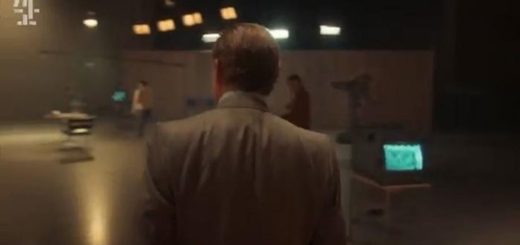Star Trek episode banned from TV over incendiary prediction about UK in 2024
An episode of the sci-fi series Star Trek remains heavily edited thanks to a particularly controversial prediction about the state of the UK in 2024.
The moment arises when Patrick Stewart’s character, Captain Jean-Luc Picard, discusses political violence with Data, a character played by Brent Spiner.
The episode, called The High Ground, aired as normal in the US but was carefully edited for British and Irish showings and remained so for 17 years.
The BBC chose to air an unedited version once in 2007 but has not done so since.
In The High Ground, Data suggests that Ireland achieved “unification” in 2024 through political violence.
The character, after studying historical revolutions, concludes: “It appears that terrorism is an effective way to promote political change.”
Stewart’s character Picard agrees but asserts: “I have never subscribed to the theory that political power flows from the barrel of a gun.”
Data quickly responds: “Yet there are numerous examples of when it was successful. The independence of the Mexican state from Spain, the Irish unification of 2024, and the Kenzie rebellion.”
He continues: “Would it be accurate to say that terrorism is acceptable when all options for peaceful settlement have been foreclosed?”
Picard, considering what has been said, concludes: “These are questions that mankind has been struggling with throughout history. Your confusion is only human.”
At the time of airing, Britain and Ireland were still reeling from The Troubles – a conflict in Northern Ireland prompted by the Irish Republican Army’s (IRA) violent opposition to British rule in the region.
Tensions were still high, and an official IRA ceasefire was still four years away.
British TV bosses considered the prediction, especially given the reference to violent conflict, too incendiary for publication.
34 years after the original episode aired, the question of Irish unification remains a contentious one.
Sinn Fein’s new Northern Ireland leader, Michelle O’Neill, has predicted a referendum on the question will be held within the next decade.
The 1998 Good Friday Agreement, which brought peace to the region, says that the Secretary of State for Northern Ireland should call a referendum if it “appears likely” a majority would back unity.
LATEST DEVELOPMENTS:
Amy Dowden made ‘tough’ BBC Strictly struggle admission just hours before collapseITV Dancing On Ice fans ‘gutted’ as stars announce exit from skating competitionLiam Payne’s final song recorded before death PULLED from release as producer speaks out
Earlier this year, former Northern Ireland secretary Chris Heaton-Harris told GB News he could not foresee such a vote being held “in his lifetime”.
When pressed on why, Heaton-Harris replied: “If you look at the latest polling in the Republic of Ireland about this, and actually people both vote with their hearts and their heads in these matters. I think we are a long way off that.”


